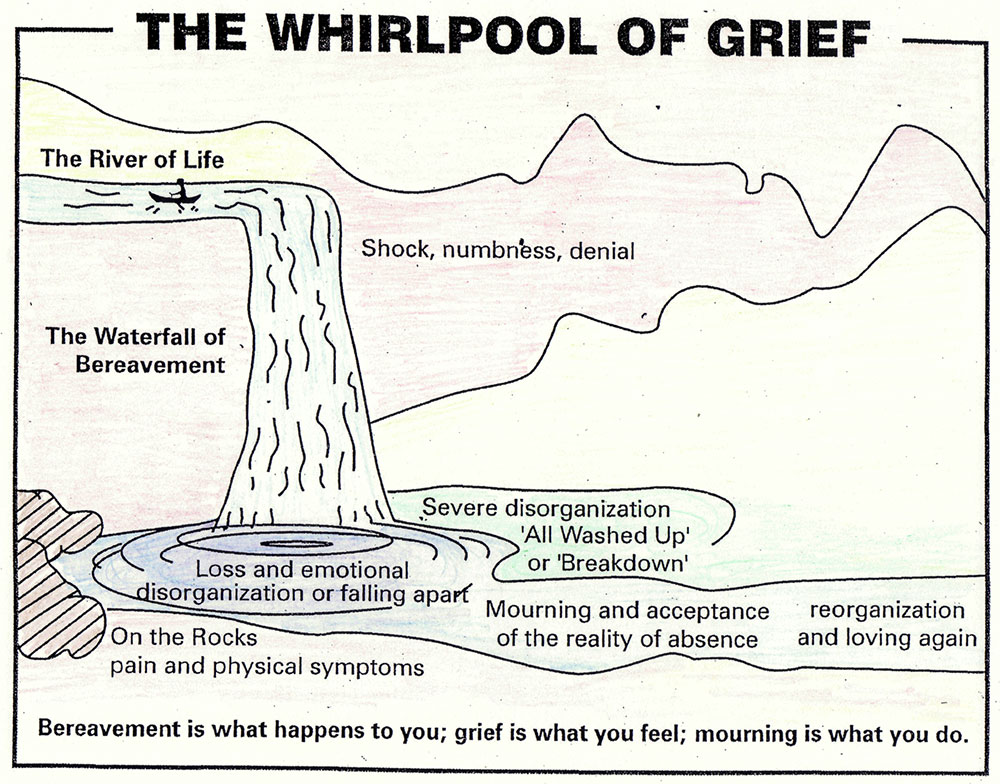Bereavement
The loss of a loved one or close attachment can give rise to huge and overwhelming emotions that often need containment, care and support. The way in which one handles loss can also give a great deal of insight into patterns of relating and attaching, and also issues in this regard, and as such processing bereavement can be a hugely complex and challenging task and varies hugely from person to person.
The five stages of grief
Grieving is a natural and healthy process, and is by some theorists considered to be a progression through five stages. These can be seen in any context of grief, from losing a job, income, a relationship or any other experience of loss.
- Denial
The imagination of a false reality, and an inability to accept the loss as real. This allows us to defend against overwhelming feelings of meaningless and apathy, leaving us numb. It allows us to absorb only as much as we can tolerate in relation to the loss.
- Anger
An understanding and actualisation of the loss, which results in fury and rage directed at the deceased, others or the world itself. The importance of anger is to valuably defend us against our pain and the reality of death and its nothingness. It creates a bridge for our feelings to be expressed towards the Other.
- Bargaining
A negotiation in an attempt to come to terms with the loss, trying to understand what one could have done differently in order to prevent the loss. The sense of ‘if only’ carries a great sense of guilt, as the direction of the affective experience has moved from the Other towards the Self.
- Depression
After the movement between powerful feelings of anger and guilt, feelings of emptiness start to enter and overwhelm. Intense sadness and withdrawal are a natural and necessary part of the process and not feeling such states would be unusual as it prevents the painful emotions surrounding apathy and loss from being fully experienced.
- Acceptance
Accepting the reality of the loss is the final stage of the grieving process, and will not be done until sufficient processing of the powerful emotional states surrounding the loss has taken place. This is about learning to live with and actualise the loss, and is not about making the loss acceptable or OK to deal with. Feelings of betrayal as we move on from the lost relationship are common, but understanding that while the loss can never be replaced, new and meaningful experiences and relationships can be created is all part of the process.
The Cruse Bereavement Care service in the UK is the foremost charity for supporting people after the loss of a loved one:
Free support services are provided, and you can find a service in your area through the following link:
Other useful resources are as follows:

